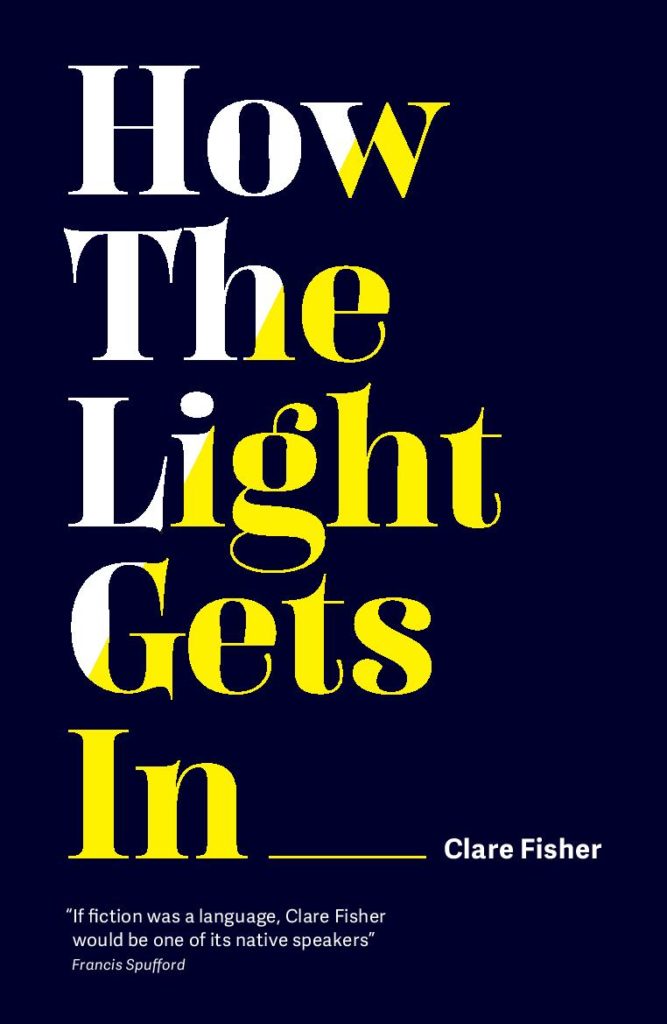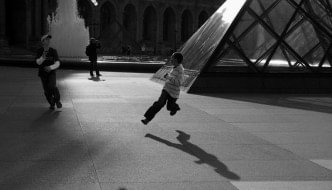
In my last column I looked at the work of artist, writer and performer David Steans who teaches on the Fine Art degree course at Leeds Arts University. He spoke about the idea of the north – as a compass direction, the specific place we inhabit, and as a concept that preoccupies writers in particular. This month I’m in conversation with Clare Fisher, author of ‘All the Good Things’ and anthology of short stories ‘How the Light Gets In’. Clare travels extensively promoting her writing and has just returned from Italy, where an Italian language version of her short stories has been published.
I asked Clare about how she regards the north as both a concept and a region and how her peripatetic lifestyle impacted on her views. She replied, “I think there’s still quite a big gap between the north as a concept – particularly when defined by London-centric publications – and the north as a region. I still spend a lot of time in London and when I tell people I live in Leeds, I am often greeted with disbelief, incomprehension, and even, on a few occasions, thinly-veiled horror.” This horror reminds me of Steans’ stories in his book ‘In The Library’ – psychological horror for a modern age where everything is not as it seems and the simple disguise of home, family, leisure and entertainment shrouds something sinister. In particular, it is the sense that community is not always warm and fuzzy but in fact holds thinly veiled allusions to a past we are not comfortable with.
Clare herself, however, calls up in her answer a geographical construct of the north that feeds our desire for a place to breathe, a place of possibilities. “What I like about Leeds and West Yorkshire – I can’t speak for other areas of the north; I haven’t lived in them or visited much – is that there’s a less of a division between the city and countryside than in the south. In London, I sometimes feel choked by the feeling that humans and concrete and glass go on forever. Here, even in the Leeds city centre you can see woodland on the horizon. It calms me that the wilderness is never far away.”
As Clare wrote both of her books in Leeds, I asked her what effect this had on her writing, particularly in her choice of location, character and tone of voice. “My novel, ‘All the Good Things’, is very south London, but I doubt I’d have been able to write it there: the relative peace and spaciousness of living here were key. My short story collection is in many ways my attempt to negotiate the differences between the north and the south and my experiences there; I tried to refract through my own voice the different voices and places I came into contact with.” It’s interesting that the writing of a place might not happen from that specific place – for Clare Leeds became a place of possibilities for writing about London.

Do the south and north exist in opposition to each other? Or more, as Massey suggests in her important essay ‘A Global Sense of Place’ (Marxism today, 1991) “in our sped up global village” travel from place to place is, for many of us, swift and eminently doable (be it actual or virtual). For some, though, moving from place to place is a social, political or cultural necessity. They have no safe place. And the ability to move freely, “the degree to which we can move between countries, or walk about the streets at night, or venture out of hotels in foreign cities” is influenced not only by capitalism but by race and gender. Massey asks if it therefore still possible or even desirable to create a local sense of place for ourselves in a global society. Does this not reek of exclusionism, calling to “an (idealised) notion of an era when places were (supposedly) inhabited by coherent and homogeneous communities”? Massey concludes that it is in fact an act of radical political faith to create places of local community and welcome so long as these places are conduits from and between global citizens with a sense of shared interests. Boundaries, she argues, are as useful for allowing things in as they are for artificially keeping them out.
Thinking about communities and voicing those places, I asked Clare how she felt about the concept of ‘giving voice’ to regions or characters. Giving voice, I suggested, is sometimes positioned as an act of post-colonial power wielding. Who are we to ‘give’ voice? “I’m not sure I like the term, as it implies there is some sort of unified voice” she responds. “I hate the term ‘voice of a generation’ for similar reasons and that the character or region is mutely waiting to be granted a voice by the writer. Some writers brilliantly capture ways of seeing or speaking that are specific to a region or a culture, but I see that more as a projection of their own sensibility and subjectivity outwards, onto those parts of the world they know and feel connected with.”
So what’s her view on the spoken voice? I am aware that as a tutor and a writer she will frequently hear her own words read by both herself and others. “I love it. I love eavesdropping, I love the way people innovate and play with their spoken language. I love books which sound like a person talking”. In ‘How the Light Gets In’ she writes “whenever something bad happened my mum would read out the poem in a voice high enough to break into the world that lay on the other side of the cracks the world where the light hid. Those other worlds, I thought, must be the ones she went in search of when she mediated behind closed doors and which glimmered in her eyes”. This voice that is high enough to break into the world is a voice I, for one, am eager to hear.
I ask my final question: would you write north with a capital ‘n’?
“Yeah”, she replies, “why not”?
Indeed.
Filed under: Written & Spoken Word
Tagged with: author.interview, book, clare fisher, generation, how the light gets in, leeds, London, place, poem, text, the north, voice, writing



Comments